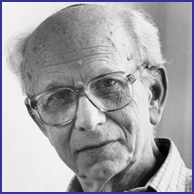A world authority on the interdisciplinary study of time, J.T. Fraser discusses how much easier it is to "speak a language and even speak it correctly than to explain to someone the rules of that language. It is easier to live by the human experience of time and act consistently with those experiences, than to explain to someone what is to be meant by future, past, and present. This lopsidedness has been the cause of much perplexity to thinkers and scientists throughout history of Western thought.
"I do not propose to remove that perplexity. But, by employing the integrated study of time and through it, by appealing both to the sciences and the humanities, I plan to sketch whatever is known and may be conjectured about the origins of the relationship between time felt and time understood.
"Then, by broadening the concerns of my inquiry, I will give reasons why I believe that the arts and letters are the proper mediators between human feelings and human knowledge in general, and between the human sense and idea of time, in particular."
Founder of the International Society for the Study of Time, Fraser is the author of Of Time, Passion, and Knowledge (1975, 1990), Time as Conflict (1978), The Genesis and Evolution of Time (1982), Time the Familiar Stranger (1987, 1988) and Time, Conflict, and Human Values (1999). He is also editor of The Voices of Time (1968, 1981) of the ten volumes of The Study of Time series (1972—2000) and Founding Editor of KronoScope - Journal for the Study of Time. Dr. Fraser has taught courses and conducted seminars in the study of time at the Massachusetts Institute of Technology, Mount Holyoke College, University of Maryland, and Fordham University. Acknowledged to be the world’s foremost authority on the interdisciplinary study of time, he is the author of many articles in professional periodicals and has lectured extensively on different aspects of the study of time.



